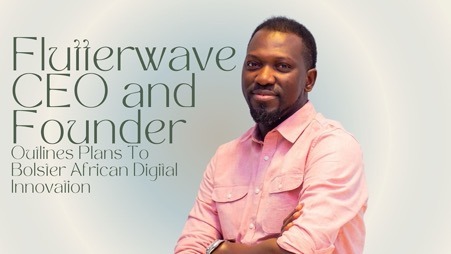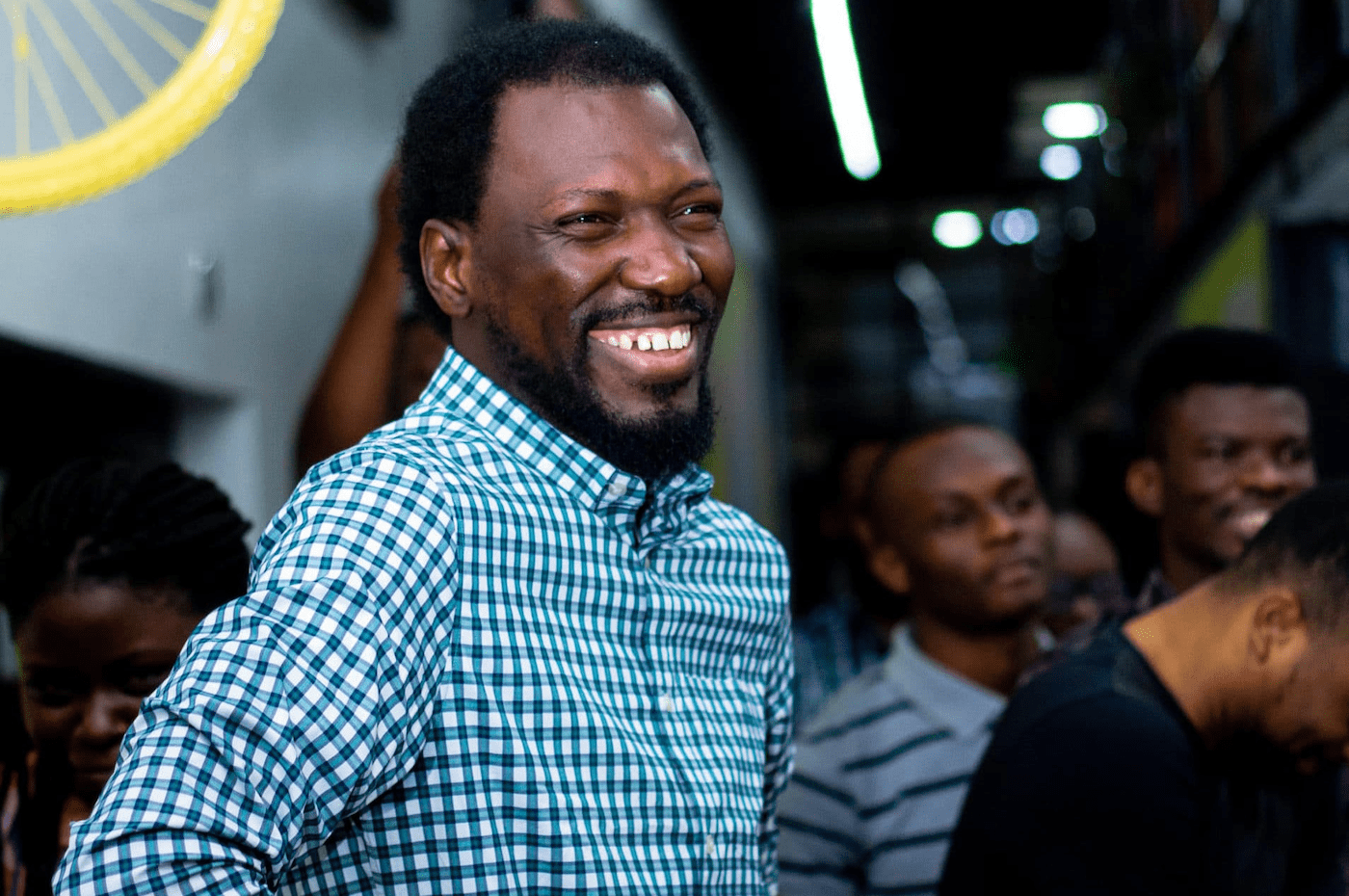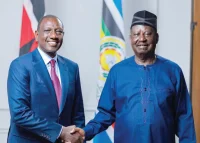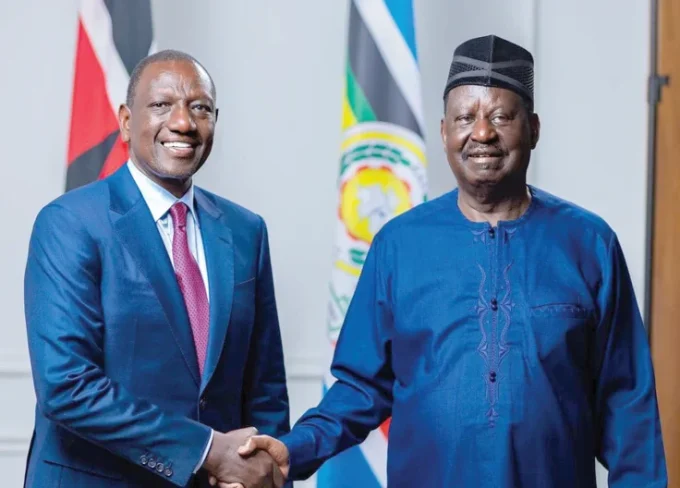The founder of Africa’s largest e-money platform plans to transform Africa’s digital marketplace, readying the continent to compete globally.
Flutterwave CEO Olugbenga “GB” Agboola outlined his ideas in a paper published in the journal Central Bank of Nigeria Economic and Financial Review. The article, titled “Nigeria’s Budding Digital Economy”[2] relies on a mix of his professional insights and researched data to present a case for transforming Africa into a powerhouse of digital innovation.
“Nigeria’s digital economy revenues rose from US$5.09 billion in 2019 to $7.13 billion and $9.97 billion in 2020 and 2021, respectively,” wrote Agboola. “It is projected that these revenues will reach $18.30 billion by 2026. In terms of investment in startups on the African continent, Nigeria is No. 1, ahead of South Africa, Egypt, Kenya, and Ghana.
“However, for a thriving and inclusive digital economy, African countries such as Nigeria need to build the critical foundations of the digital economy (World Bank Group, 2019). These foundations are interdependent and require public and private sector solutions.”
Flutterwave’s Widespread Change in Africa
Flutterwave has already effected widespread change in Africa’s digital marketplace. By allowing companies to transfer money across national borders quickly, the company kick-started a digital revolution that has seen the solution to longstanding issues plaguing the continent’s financial sector.

After the success of his company’s initial efforts, the Flutterwave CEO expanded the software’s ability to meet the needs of more than enterprise clients. Through services like Send App by Flutterwave and the Flutterwave Store, the company broadened its scope to support remittance transfers from Africans in the diaspora to friends and family across the continent. It also allows individual Africans to sell items online to customers across the world.
In the article, Agboola draws on the expertise he’s amassed as Flutterwave CEO as well as carefully sourced research to present a multilevel plan to put African residents at the forefront of the digital economy.
> Flutterwave Listed in Fast Company’s ‘Brands that Matter’ Ranking
The first goal should be to promote digital skills and literacy among the African population. As more people learn to embrace and use digital products, he argued, a natural ecosystem of African users will emerge, which will, in turn, encourage business startups, bolster innovation, and foster talent.
“Economies need a digitally savvy workforce,” Agboola wrote. “Digital skills form a pool of capabilities, and it is in the exchange of ideas by these skilled individuals, and the ability to execute those ideas that digital innovation is born.”
The Need for Digital Infrastructure
The next step toward positioning Africa as a land of digital innovation is to build a reliable digital infrastructure.
The Founder and CEO of Flutterwave believes that a mix of public and private investment can create a rich environment for digital innovation to flourish. That means expanding access to high-speed internet, starting innovation hubs that house computing programs and tools, and curating digital spaces or platforms that promote communication among African users.
To better illustrate his point, he noted two areas that have accomplished these goals. Silicon Valley in the United States and Bengaluru, India, have leveraged government and private investments to create structures and facilities that support digital innovation.
“The spark that lit the significant emergence of digital innovation in Nigeria, and which has made Nigeria the largest destination in Africa for foreign investments into the digital economy, was in the Yaba area of Lagos with the collaboration between the Federal Ministry of Communications and Technology, the Lagos State Government, private telecommunications providers, and technology incubators,” he wrote.
Every “Yaba” in Africa needs seamless and efficient digital infrastructure to harness its full potential. Such infrastructure must support both indigenous and international enterprises, enabling them to grow, operate, and innovate effectively. That’s an important assignment Flutterwave has embarked on, leveraging its payment infrastructure to unify the continent’s fragmented payment processes and drive forward digital innovation for economic growth.
Overcoming Limitations
Agboola believes other African nations can replicate Nigeria’s example. However, to do so, they must jettison some common thinking about internet accessibility.
In 2018, only [3] 0.04% of Nigerians had a fixed broadband connection to the internet — a figure far below the global average of 13.6%. However, Agboola says it’s a mistake to read this as the number of Nigerians who had internet access.
> Flutterwave Launches Engineering Mobility Programme in India
The Flutterwave CEO knows from his personal experience that far more Nigerians use his platform regularly. He explained that it’s “important to make a distinction between the physical penetration of broadband infrastructure on the ground and its availability for use to the ecosystem.”
Adopting a different outlook can help estimate the number of people who can regularly access the internet. Instead of measuring physical connections, Africa should judge connectivity across four measures: availability, awareness, accessibility, and affordability.
Judged by these criteria, 49% of Nigerians had internet access in 2021, and a full 60% should be connected by 2026.
“Many of the new users are connecting to the internet on their mobile devices as smartphone adoption grows rapidly in the country,” Agboola wrote. “This has enabled innovation to reach these new digital entrants and guided those who are building for Nigeria always to adapt their digital innovation to reach their market with these constraints in mind.”
African states, municipalities, and communities can build digital infrastructure that meets their population’s needs by pursuing private-public partnerships that provide internet access to smartphone users who may not need individual broadband access.
The Bottom Line
According to Agboola, by laying the right groundwork now, African countries can position their populations to compete effectively in the global digital marketplace in just a few years.
Through digital literacy programs and smart infrastructure, countries like Nigeria can ensure their populations are primed to drive digital innovation, which will be the future currency.
“Innovation is the lifeblood of any digital economy,” the Flutterwave CEO wrote, “And it is the constant emergence of innovation that ensures the competitiveness and sustenance of the sector.”
Sources
https://flutterwave.com/us/blog/looking-to-the-future-2024-at-flutterwave
https://dc.cbn.gov.ng/efr/vol60/iss4/6/
https://dc.cbn.gov.ng/efr/vol60/iss4/6/
https://dc.cbn.gov.ng/cgi/viewcontent.cgi?article=2095&context=efr













Leave a comment